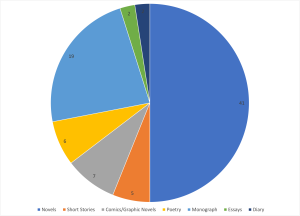““Kindness” covers all of my political beliefs. No need to spell them out. I believe that if, at the end, according to our abilities, we have done something to make others a little happier, and something to make ourselves a little happier, that is about the best we can do. To make others less happy is a crime. To make ourselves unhappy is where all crime starts. We must try to contribute joy to the world. That is true no matter what our problems, our health, our circumstances. We must try. I didn’t always know this and am happy I lived long enough to find it out.”
-Roger Ebert, http://www.salon.com/2011/09/15/roger_ebert/
“When you leave a job, one of the hardest decisions you have to make on cleaning out your desk is what to do with the coffinlike cardboard tray holding 958 fresh-smelling business cards. You can’t throw them out— they and the nameplate and a few sample payroll stubs are proof to yourself that you once showed up at that building every day and solved complicated, utterly absorbing problems there; unfortunately, the problems themselves, though they once obsessed you, and kept you working late night after night, and made you talk in your sleep, turn out to have been hollow: two weeks after your last day that already have contracted into inert pellets one-fiftieth of their former size; you find yourself unable to create the sense of what was really at stake, for it seems to have been the Hungarian 5/2 rhythm of the lived workweek alone that kept each fascinating crisis inflated to its full interdepartmental complexity. But coterminously, while the problems you were paid to solve collapse, the nod of the security guard, his sign-in book, the escalator ride, the things on your desk, the site of colleagues’ offices, their faces seen from characteristic angles, the features of the corporate bathroom, all miraculously expand: and in this way what was central and what was incidental end up exactly reversed.”
—Nicholson Baker, The Mezzanine, p. 92f
Discussing, initially, the development of the plastic straw and the problems (floating) that came with it:
“Similarly, there are often unexpected plusses to some minor new development. What sugar-packet manufacturer could have known that people would take to flapping the packet back and forth the centrifuge its contents to the bottom, so that they could handily tear off the top? The nakedness of a simple novelty in pre-portioned packaging has been surrounded and softened and made sense of by gesticulative adaptation (possibly inspired by the extinguishing oscillation of a match after the lighting of a cigarette); convenience has given rise to ballet; and the sound of those flapping sugar packets in the early morning, fluttering over from nearby booths, is not one I would willingly forgo, even though I take my coffee unsweetened. Nobody could have predicted that maintenance men would polish escalator handrails standing still, or that students would discover that you can flip pats of pre-portioned butter so they stick to the wall, or that tradesmen would discover that they could conveniently store pencils behind their ears, or later that they would gradually stop storing pencils behind their ears, or that windshield wipers could serve as handy place to leave advertising flyers. And unpretentious technical innovation—the straw, the sugar packet, the windshield wiper— has been ornamented by a mute folklore of behavioral inventions, unregistered, unpatented, adopted and fine-tuned without comment or thought.”
—Nicholson Baker, The Mezzanine, p.94-5f
“I write partly in order to change myself.”
—Susan Sontag, in Conversations with Susan Sontag, ed. Leland Poague, pp. 130
‘I find myself drawn to literature more now than in the past; not the individual works so much as the idea of literature— the heroic effort and nobility of our human desire to make beauty of our minds— which moves me to tears…”
—Ruth Ozeki, A Tale for the Time Being, 257
“Machines are here to stay, or for the time being. They can tend toward our stupefaction or our enlivenment. To me, the choice seems obvious and, once taken, cries out for action.”
—John Cage, letter to Paul Henry Lang, May 22, 1956
“…the principle underlying all of our solutions is the question we ask.”
—John Cage, to Time Page, quoted at http://www.nybooks.com/articles/2016/10/27/john-cages-gift-to-us/
“I think one of the great artistic questions for any practitioner of art is, how do you help other people concentrate on a moment?”
—Teju Cole, on the On Being podcast
Teju Cole — Sitting Together in the Dark
“It is not important whether or not Sontag was always right in her conclusions, only that she was right in raising the issues that she did; for the most useful position is the one that prompts people to test an idea and perhaps think for themselves by disagreeing.”
—Rebecca Solnit, after the death of Susan Sontag (http://www.tomdispatch.com/post/2095/rebecca_solnit_on_sontag_and_tsunami)
“We keep old notebooks in anticipation of losing access to superfluous meaning. We look forward to the details becoming pure data.”
—Elisa Gabbert, https://catapult.co/stories/personal-data


